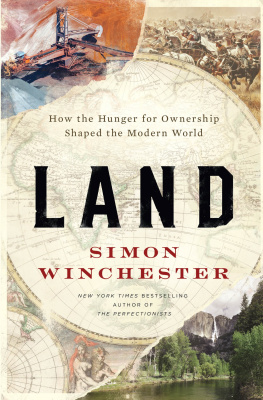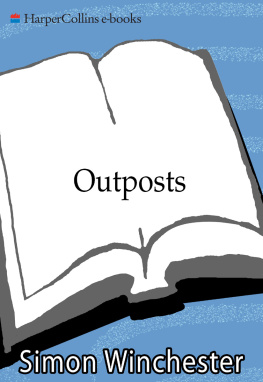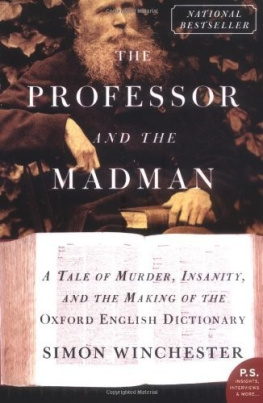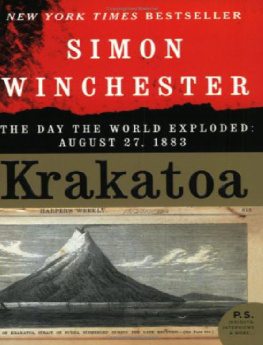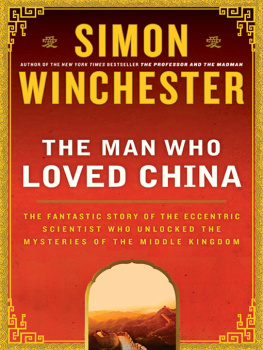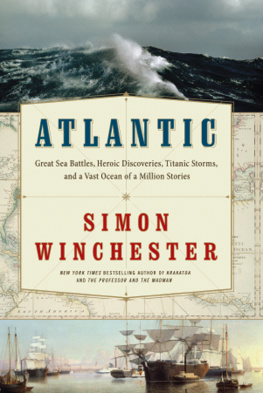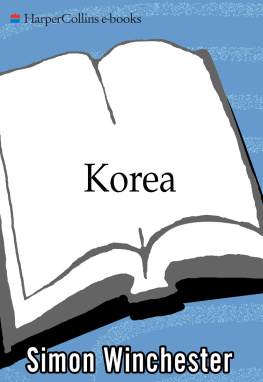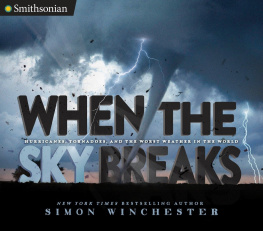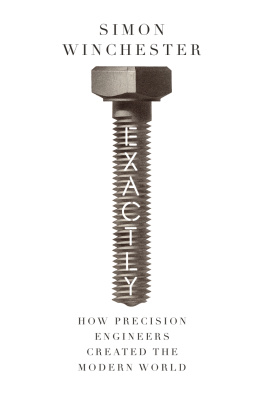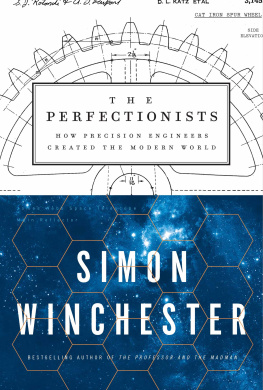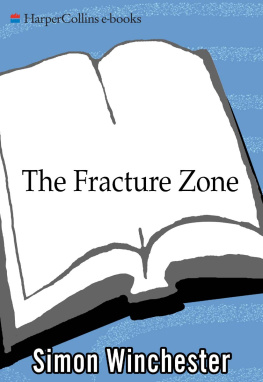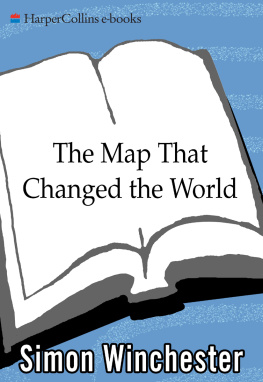Simon Winchester - Land: How the Hunger for Ownership Shaped the Modern World
Here you can read online Simon Winchester - Land: How the Hunger for Ownership Shaped the Modern World full text of the book (entire story) in english for free. Download pdf and epub, get meaning, cover and reviews about this ebook. year: 2021, publisher: HarperCollins UK, genre: Home and family. Description of the work, (preface) as well as reviews are available. Best literature library LitArk.com created for fans of good reading and offers a wide selection of genres:
Romance novel
Science fiction
Adventure
Detective
Science
History
Home and family
Prose
Art
Politics
Computer
Non-fiction
Religion
Business
Children
Humor
Choose a favorite category and find really read worthwhile books. Enjoy immersion in the world of imagination, feel the emotions of the characters or learn something new for yourself, make an fascinating discovery.
- Book:Land: How the Hunger for Ownership Shaped the Modern World
- Author:
- Publisher:HarperCollins UK
- Genre:
- Year:2021
- Rating:4 / 5
- Favourites:Add to favourites
- Your mark:
- 80
- 1
- 2
- 3
- 4
- 5
Land: How the Hunger for Ownership Shaped the Modern World: summary, description and annotation
We offer to read an annotation, description, summary or preface (depends on what the author of the book "Land: How the Hunger for Ownership Shaped the Modern World" wrote himself). If you haven't found the necessary information about the book — write in the comments, we will try to find it.
Land: How the Hunger for Ownership Shaped the Modern World — read online for free the complete book (whole text) full work
Below is the text of the book, divided by pages. System saving the place of the last page read, allows you to conveniently read the book "Land: How the Hunger for Ownership Shaped the Modern World" online for free, without having to search again every time where you left off. Put a bookmark, and you can go to the page where you finished reading at any time.
Font size:
Interval:
Bookmark:
DEDICATED TO CHIEF STANDING BEAR

In 1879 the U.S. government declared this
Ponca chief to be a person under the law.
But they still took away his lands.
The first person who, having enclosed a plot of land, took it into his head to say this is mine, and found people simple enough to believe him, was the true founder of civil society. What crimes, wars, murders, what miseries and horrors would the human race have been spared, had someone pulled up the stakes or filled in the ditch and cried out to his fellow men: Do not listen to this imposter. You are lost if you forget that the fruits of the earth belong to all and the earth to no one!
JEAN-JACQUES ROUSSEAU ,
Discourse on Inequality (1755)
UNLESS OTHERWISE NOTED, ALL IMAGES ARE IN THE PUBLIC DOMAIN OR ARE COURTESY OF THE AUTHOR.
It is a comfortable feeling to know that you stand on your own ground. Land is about the only thing that cant fly away.
ANTHONY TROLLOPE ,
The Last Chronicle of Barset (1867)
A Caveat
W ith the worlds sea level rising fast, the assumption that land is the only thing that cant fly away, or the only thing that lasts, is for the first time now shown to be demonstrably false. The belief in lands limitless stability has informed humankinds approach to the possession of the worlds surface for centuries past, as the following pages illustrate. But now a profound change is coming.
The future is a foreign country: they will do things differently there.
O n a warm midsummers evening just before the end of the last century, in a book-lined lawyers office in the pretty town of Kent, Connecticut, I handed over a check for a moderate sum in dollars to a second-generation Sicilian American, a plumber named Cesare, who lived in the Bronx but who had driven up into the lush New England countryside especially for the brief formalities of this day. The all-too-complicated rituals of what in real estate parlance is called a closing were familiar to the lawyers, less so to me. In exchange for the checka cashiers check, certified by the bank to be as good as cash; the lawyers had insisted; and to me it indeed felt like cash, painfully disbursed, and representing some years of scrupulous saving on my partI was handed by Cesares stone-faced attorney an engraved, embossed, and rather elegant piece of what looked like parchment, a document formally known as a deed.
This credential indicated that, with the agreed funds having been offered and accepted, I was now the unambiguous, undisputed, and indisputable owner of a tract, formerly owned by Cesare, of 123 acres of forested and rocky mountainside, located in the hamlet of Wassaic, in the village of Amenia, the town of Dover, the county of Dutchess, in the state of New York. The deed gave me title to the tract. I was now legally entitled to possess it. I was its owner. I could now occupy it, exclusively.
I had just purchased a piece of the United States of America. A morsel of the continent now belonged, exclusively, to me. Since the total land surface of the planet amounts to some 36,652,096,000 acreslet us say 37 billion acresI could declare, on walking out into the sunshine on that July evening, that my 123 acres, a little over three-billionths of its extent, were now mine, and mine alone.
It was the first time in my life that I had ever done such a thing, had ever come to own a piece of real property, anywhere. Personal property, yes: I had owned cars, computers, dishwashers, books, fountain pens. But real property, and its kissing-cousin real estate: this was a first. A first for me, and more or less the first time for anyone in my family. Back home in England my parents, whose lives had been mostly spent in respectable impoverishment, had in their later years managed to buy a small cottage in the English Midland county of Rutland. Since their house came with a tiny postage stamp of a garden, with a lawn and some shrubs and a dribbling water feature, it can technically be said that, once they had discharged their mortgage, they did indeed own real estate, albeit only a vanishingly small parcel of it. It would be stretching things, straining credulity, to hazard a description of them as landowners.
It was much the same for my grandparents, whose circumstances were similarly straitened. Both the paternal-side couple who had lived in England, as well as those members of my mothers rather more complicated side and who came from Belgium, had had nothing of the sort. For them, as for many people, accommodation and shelter relied on the whim and commercial acumen of a series of landlords, who as the name suggested had themselves owned the acreage on which my various grandparents had settled. I was given to understand that all the generations of my ancestors before them were unburdened by ownership also, had never owned an acre or a hectare, a cordel, a fardel, or a virgate, nor any fraction thereof. All of which made my receipt of that Dutchess County title, a document of such letterpressed and engraved magnificence that I would gaze at it enraptured for hours, both historic and precious.
Even though my property was neither particularly costly nor likely ever to be valuable, nor in truth was even very useful, my ownership of it had a powerful personal symbolism. A decade or so after the transaction I traveled to Boston, to the afterdeck of an old sailing warship, where I swore an oath before a federal judge and became, in a brief but moving ceremony, an American citizen. For many years after that life-altering event I drew considerable comfort and satisfaction from knowing that I had become fully invested, and with the square footage of mountainside under my ownership quite literally so, in the future of my new country.
I would walk the forestmy forest now!as often as I could. I would puff and pant my way up the escarpment, following a vague and almost vanishingly overgrown track through the woods and which led up from an ancient loggers landing. After a quarter mile or so, I would turn off left into the deeper timberland, after which I would frequently get somewhat confused, disoriented, and even a little lost. I remembered from Boy Scouts days that moss tends to grow on the north side of the trees and from school physics days that streams tended to flow downhill, and reckoned therefore that I would always be able to find my way out and back to civilization. Moreover, it turned out that, slicing across this tract of mine in a perfect die-straight line of cleared underbrush, and with permission seemingly granted by me under grandfathering laws in which I played no apparent part, and with warning notices posted every few hundred yards in red and white, there was, in a buried, invisible, and supposedly atomic-attack-hardened cylinder of concrete, a secure and once secret communications cable that had connected the Eisenhower-era White House with a strategic nuclear bomber base somewhere up in Maine. If I stumbled across this, then I knew I would find my way outat least to Washington, or to Maine.
But otherwise, once deep in the woods all the world soon faded, the forest became almost primeval in its quiet and detachment. Somewhere perhaps, and not too far away, maybe, there would be a rain-softened and moss-covered split-rail fence of cedar, perhaps an old wall of tumbled stones, and by chance a cairn and a chiseled mark or two left on a rock by some long-ago survey team. But generally, deep in these dark woods darker middle, there was no other clear sign of human intervention or activity, few clues for the passing stranger that mankind was ever here at all. There were just trees and ferns and soil and birds and the leavings of deer and rabbits and raccoons and bears, and overhead, glimpsed blue and silent through the crowns of leaves, the presiding vastness of what the poet John Clare, two centuries before, had called
Font size:
Interval:
Bookmark:
Similar books «Land: How the Hunger for Ownership Shaped the Modern World»
Look at similar books to Land: How the Hunger for Ownership Shaped the Modern World. We have selected literature similar in name and meaning in the hope of providing readers with more options to find new, interesting, not yet read works.
Discussion, reviews of the book Land: How the Hunger for Ownership Shaped the Modern World and just readers' own opinions. Leave your comments, write what you think about the work, its meaning or the main characters. Specify what exactly you liked and what you didn't like, and why you think so.

